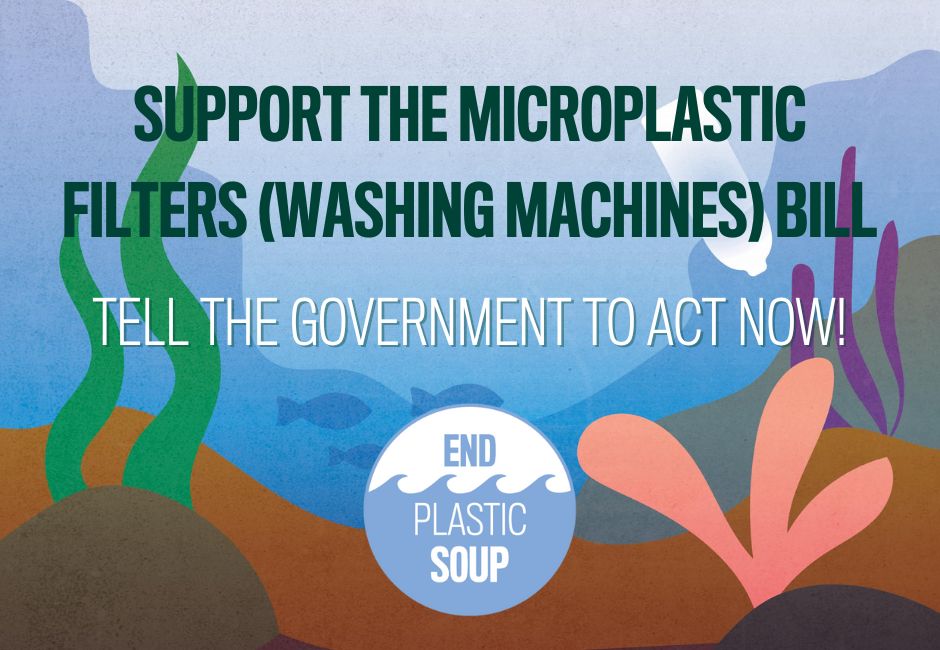We need microplastic filters in washing machines now: Support the Microplastic Filters Bill

Next month, the Microplastic Filters (Washing Machines) Bill is set for its second reading in Parliament, and we need your help to tell the government not to waste this opportunity. This is a crucial opportunity to begin tackling microplastic pollution at its source.
Every time we do our laundry, over 700,000 microplastic fibres are released into the wastewater. In 2018, we at the Women’s Institute estimated that we do 68 million laundries per week in the UK. Seven years later, we are still learning about new areas of the human body and in nature where microplastic pollution is reaching, and hearing increasingly concerning reports of serious health risks. Still, successive governments have only taken incremental steps in addressing this risk to health, economy and nature. A simple solution exists and we need decision makers to listen now.
Microplastic pollution is everywhere and it is not just an environmental concern – it poses a huge risk to our economy and our health. We know washing synthetic clothing is a huge contributor to this pollution.
Through our work with the industry, scientists, parliamentarians and NGOs, we know that solutions exist, and the issue needs to be tackled at the source. The Microplastic Filters (Washing Machines) Bill would make microplastic-catching filters mandatory in all new washing machines. Washing machine filters are not the end-all solution to microplastic pollution, but it is a simple, effective and affordable solution that would stop a huge proportion of microplastics.
However, as a Private Members Bill, it is unlikely that the Bill will be given time in the Commons, and we need to take the opportunity to pressure the government before the Bill is pushed out. We have already called on Secretary of State Steve Reed to meet with us, but to make sure he listens WI members are writing to their
You can help by tagging government in social media. Download and share our graphic and tag @Defrauk, @stevereedlabour and @emmahardymp.
Let’s make it difficult for government to ignore the issue!
If you’re a member you can find more information and resources on MyWI here.
